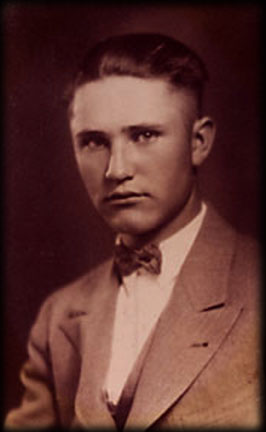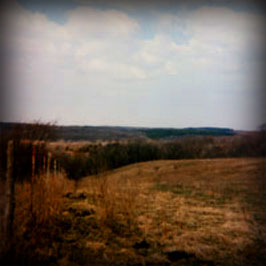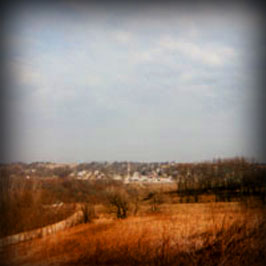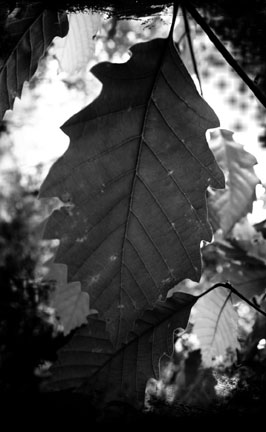Irish Stories in the Hills
by Joshua Heston
Storytelling. It’s an art as natural as breathing to many of Irish descent.
Now, storytelling doesn’t mean the hyped-up, theatrical, dramatic style of “professional” storytellers.
In the old days, Celtic culture relied on the spoken word. Knowledge was not chiseled into stone or inscribed on papyrus. No, it was enshrined in the minds of the people. Memorized.
Stories were not for drama nor for theatrics.
Stories were the life cord of each person — each family. Stories framed past, present and future, defining, comforting, educating.
As natural as breathing.
February 17, 2010
Lucas Days
from Jim Danner as told to Donny (Danner) Heston
My Grandma Goben was tall. She had second sight. She was Welsh. Grandad was a pure Irishman. Little guy.
When Aunt Lin was a baby, they told about Grandad taking Grandma and the baby to church. Got in there and got set and the baby started to cry. The preacher said, “Madam, take that squalling infant out of here.” Grandpa got up and took Grandma and the baby out and then he said, “I went back in and got that preacher and brought him out and give him an A-number-one-good one!” Got in his little buggy and left. Never went there no more.
I guess I was named after my Uncle Jim Goben. He was the pick of all my uncles. I didn’t have anything against old Uncle George. Uncle Ault accused me of stealing his tobacco. I hadn’t been near his tobacco. I hated him when I was little. Uncle Jim would say, “Are you broke, Jimmy? I'll give you a quarter.” I always paid him back.
Uncle Jim was married to Hattie. She’d have a worm-fit about Uncle Jim drinking beer. We found him down at the beer joint one really cold, icy night and took him and slid him on in home. If he was drunk, you could never tell it. He was always just the same except he couldn’t get the match in the right place to light his little pipe.
Les Gwinn would laugh and light his pipe for him.
Uncle Jim outlived Aunt Hattie. Your mom made cookies one Christmas Eve and we took him some. He had it so hot in there you couldn’t stand it. Then we went over to Mommy’s Uncle Ed Hayworth and he was sitting in there with his coat and overshoes on. I asked him if he wanted me to go down to the furnace and turn that cob over. He didn’t. Grandad’s house was on the north side of [Highway] 65 where the station sets now — from the car wash to the highway. He got him some barrel staves and woven wire and made himself a hammock. He was laying out there watching two little kittens play. An old tom cat came along that night and killed Grandad’s kittens.
The next day he layed out there with his old muzzleloader. Tom cat strolled by and stopped without any head. Broke him of killing kittens.
I don’t remember it but my dad remembers when Lucas had 17 saloons on Front Street. Al Capone use to come to Tipperary east of Lucas to shoot craps. I rode with one of his drivers. His driver was hauling Templeton Rye during Prohibition. He’d stop and eat at Bill’s cafe in Lucas and I’d ride with him on out past where I’d go home. Al Capone’s half-brother was federal marshall in charge of Indian reservations. Called Two-Gun Hart. Drove an old Buick coupe full of bullet holes. Probably shot them in there himself.
Bunch of guys called Two-Gun Hart out and told him if he wasn't a sheriff what they’d do. So he took off his star and guns and they were fighting and it was back about Tunney-Dempsey time [Summer of 1927]. The rodeo clown came up and started calling the fight and using his gun with blanks. People couldn’t see what was going on and thought they were really shooting. They damn near had a riot. Everybody crowded around the fence looking and one old man was peeping through the fence and an old buffalo they used in the rodeo came up behind making low noises and started at ’em. And they went over the fence. That old guy flew.
My Grandma Danner was English. She was into who all her ancestors were. When I was a little guy she stayed at our place and she’d get me surrounded and tell me all about it. How they even went back to Sherwood Forest. I didn’t care. Once she told me her mother’s maiden name was Perkiser and I said, “Well, ain't that a helluva name?” She thought Dad ought to wash my mouth out with soap, but he didn’t. Dad kind of had a coughing fit of some sort and had to leave right then.
Grandad Danner was part Irish and part Pensylvania Dutch. When Grandma Danner was staying there she’d take some kind of medicine and want my mom to wait on her. And mom was cooking for everyone and Grandma told her to get her medicine so mom went over to the old cabinet, fished out a bottle and poured out a spoonful and give it to Grandma. And she coughed and spit and slobbered and said, “Lizzy, you’ve killed me.” Mom looked at her bottle and she'd give her a spoonful of liniment. Mom said, “Yeah, I did,” and went and scooped off some cream and fed her than. Never hurt her any that I could tell.
I liked Grandad Goben. Like I said, he was a little bench-legged Irishman. Grandad’s house was on the north side past [Highway] 65 where the station sets now — from the car wash to the highway. When the mines were running, that whole set of hills north of Lucas was full of houses. I can’t remember but Dad remembers when there was 17 saloons on Front Street. Just that one old beer joint now and if you’d cut the electric wire it would lay down. It used to be a restaurant and cream station — all kinds of things. I remember when they had a jail. Just a box around a cage. [It would] hold a couple of people. They tore it up and sold it for scrap iron.
Dad’s brother Smith had a voice like a bull calf and showed the whites of his eyes. Could talk all night and not say anything. Had an old long-barrelled pistol. Was the town marshall in Lucas. Anybody making a fuss and he’d look at ’em and pull that gun. That’d sober up anybody. Old Smith was talking to Dad, telling him what a man he was and Pappy said, “In your mind, possibly.”
May 25, 2006

Plate 1.
Jim Danner
Born: April 20, 1908. Died: November 21, 2006. This page is dedicated to the memory of Jim Danner, my grandpa. — Joshua Jim Heston, editor
Lucas, Iowa
by Joshua Heston
Little remains of Lucas, Iowa. Certainly not enough to indicate what it once was.
The valley bottom formed by Whitebreast Crick was blessed — or cursed, depending on the story — with some of the richest coal deposits in the MidWest. And in the 19th century, coal was money. Pioneers from the eastern states, immigrants fresh from Europe, and the mighty Burlington-Northern railroad, made Lucas one of the biggest cities between Chicago and Omaha.
Saloons. Rooming houses. Hotels. Eight to ten trains served Lucas every day. Catalog orders from Montgomery Wards were delivered in 24 hours. Oysters packed in ice and bananas in crates were shipped in December.
Absolom Knott’s Opera House, with its three stories and two baby grand pianos, was a required stop for orchestras and vaudeville acts traveling west from Chicago. Big Hill Mine. Old Cleveland Number Four. Old Jerico. The coal mines would run all day and all night.
Men could make a good living just cutting trees and selling prop lumber to those mines. For 40 years, those mines ran.
Today, there is almost nothing left. The coal ran out. The opera house burned to the ground. The workers moved on. And then, stories were all that remained. But as the years passed, those too began to fade.
A few are recorded here.
May 24, 2006

Plate 2.

Plate 3.
Go to Father
from Donny (Danner) Heston
My dad always had a great memory which I think is a typical Irish trait. Memorizing long poems was a requirement when he went to school in Lucas and all my life, when we’d be working together, he would recite funny ones for me. Here’s one:
Go to Father
- “Go to father!” she said
- When I asked her to wed.
- Though she knew that I knew
- That her father was dead.
- And she knew that I knew
- What a life he had led
- And she knew that I knew
- What she meant when she said,
- “Go to father!”



